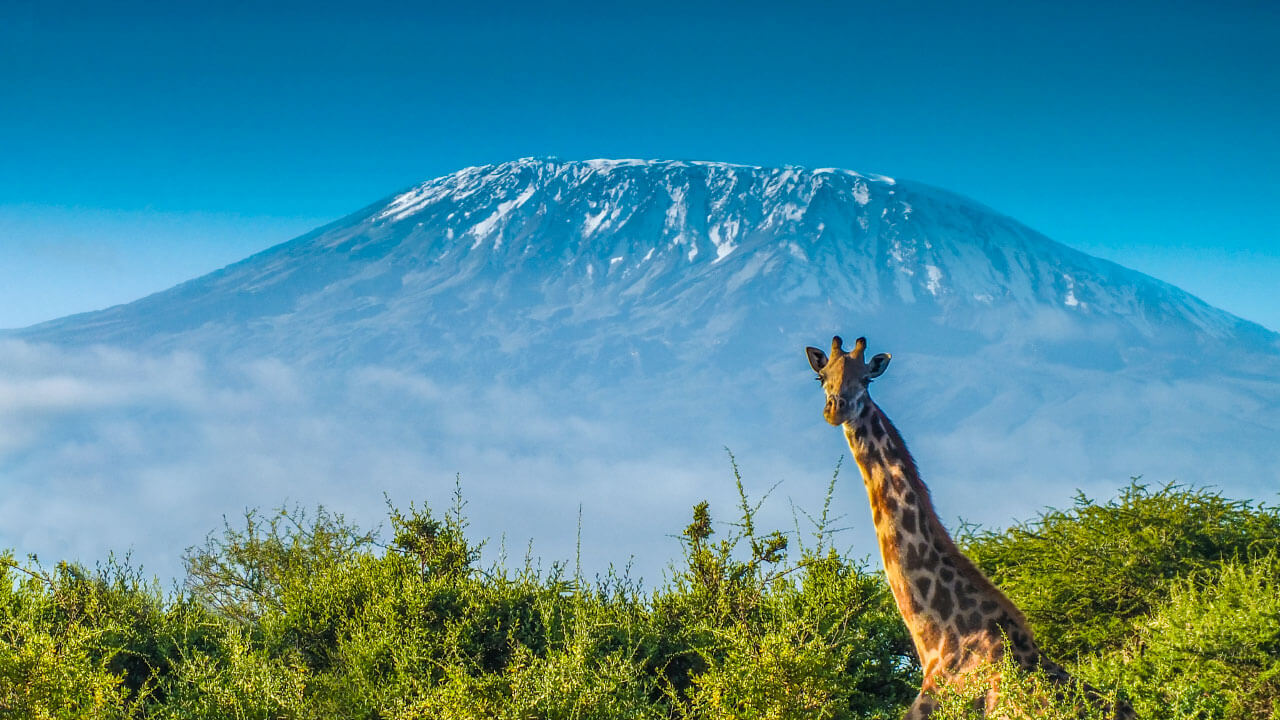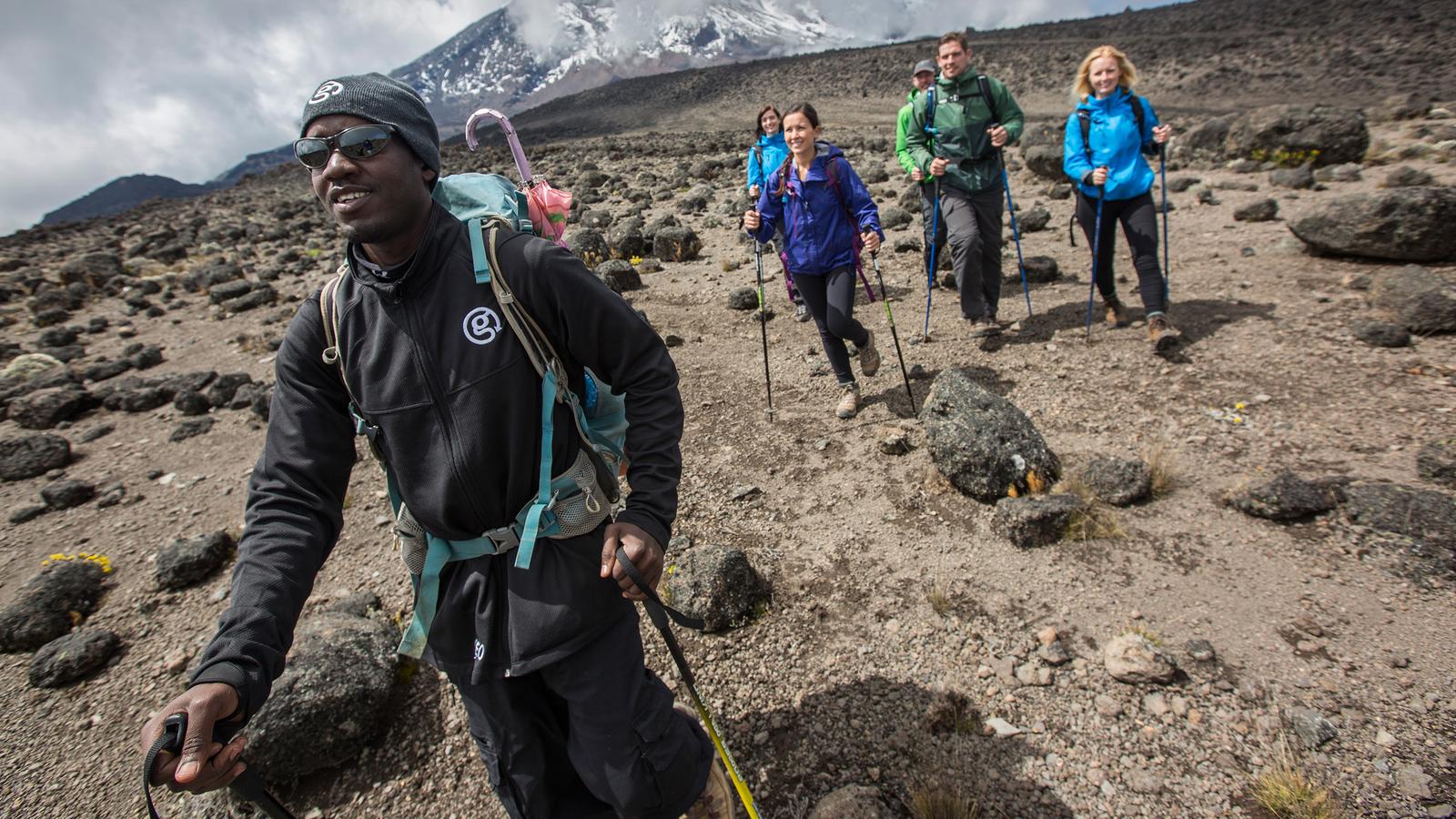In this section we have provided a guideline and worked example for calculating how much you should set aside for tips. I encourage using this as a guideline only. We will say now that our numbers are 10-20% more than many of the other tipping numbers you might find online. This is because we believe that anyone who can afford to trek Kilimanjaro as a leisure activity, can also afford to pay that little bit more to their support crew
Before you begin your climb you will meet your guide and porters. Typically guides can speak good English, porters less so.
Porters carry all your gear (excluding your day pack) and all the equipment you need on your climb (tents, cooking equipment, food, water etc.). Each porter carries up to 20kg on their back or head! Yes, 20kg. And usually another 5kg of their own kit in addition to this.
Some tour operators limit the weight that porters carry to 15kg.
Note: new regulations mean that guides and cooks are not allowed to carry any weight apart from their own gear.
Porters race ahead of you and your guide to make sure they get to camp sites before you and have everything setup for your arrival (tent assembled, food ready etc.).


